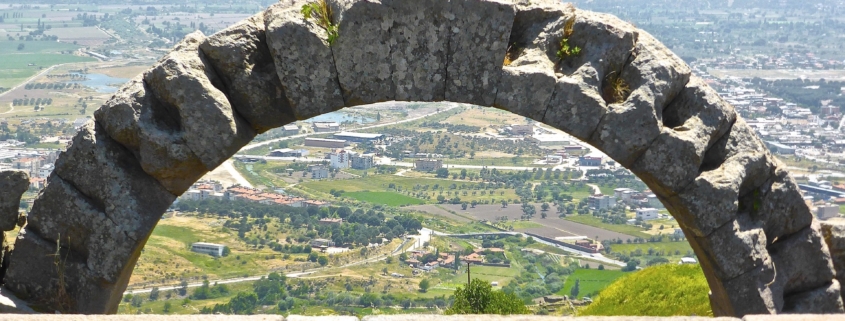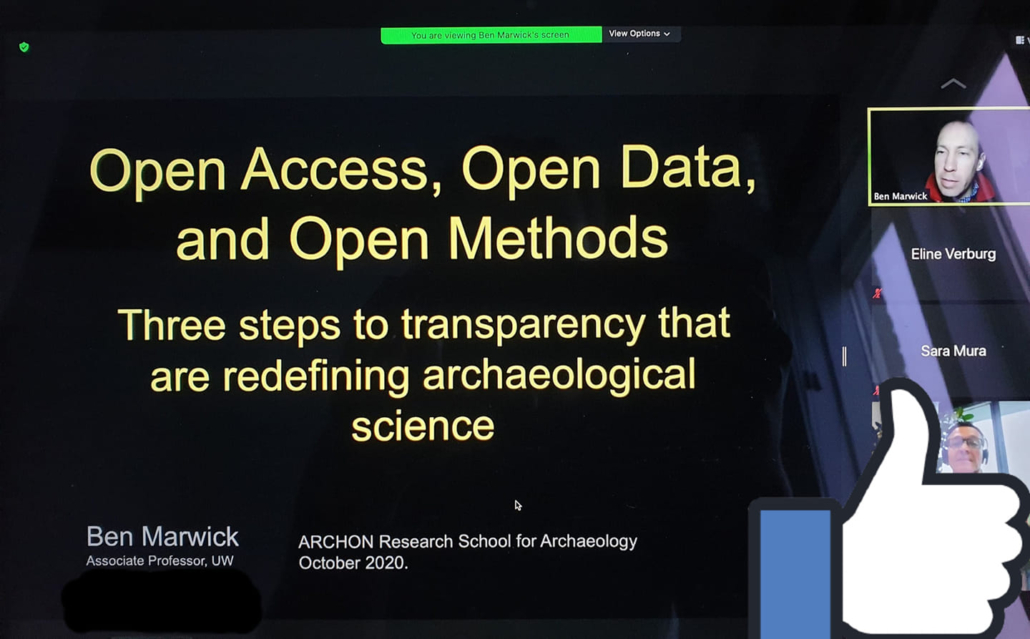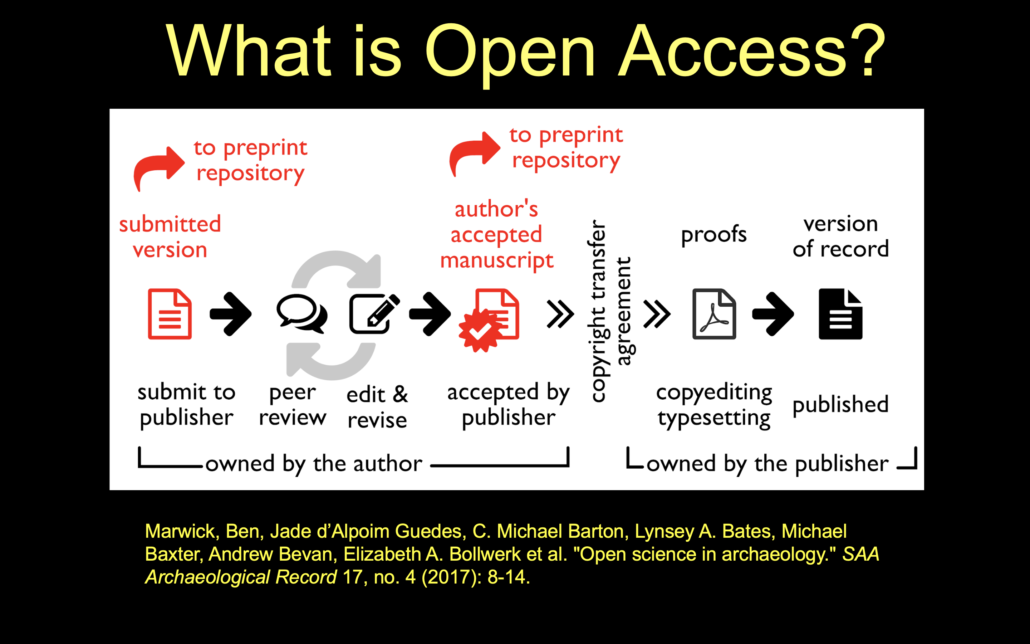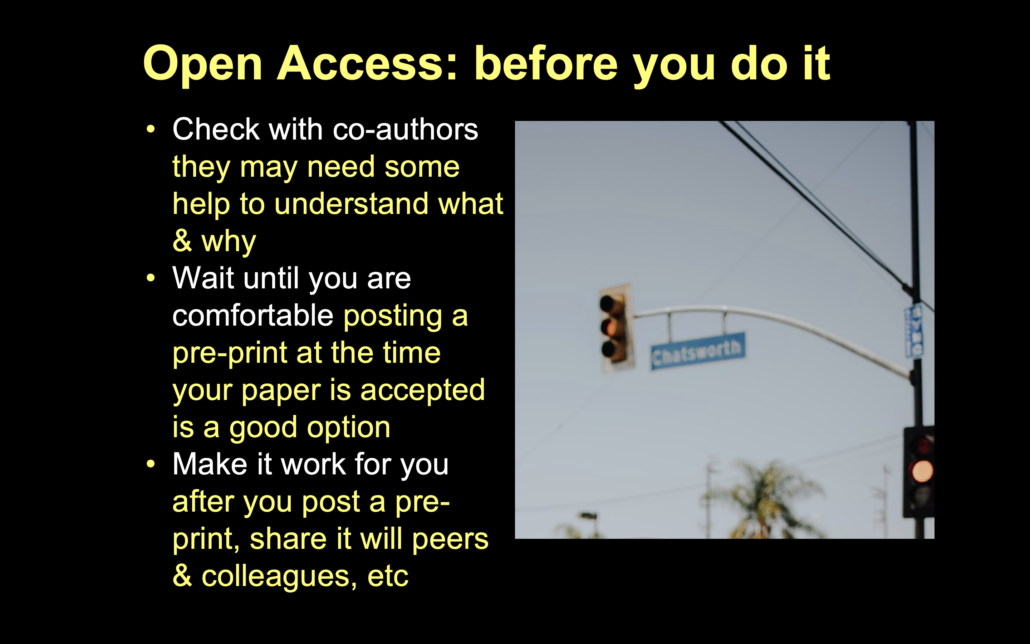Looking back on ARCHON Day 2020!
Looking back on ARCHON Day 2020
The ARCHON Day 2020 took place on 30 October 2020 as an online event. Students and professional researchers virtually came together to talk about this year’s central topic: ‘Advancing access to Research’. ARCHON Steering Committee member Ela Altay wrote a recap blog to give an impression of the event:
Poster session
The ARCHON Day started with a brief introduction and the presentation of posters by Anika Hellemons, Sara Mura and Keshia Akkermans. They dealt with (Pre-) Colonial cooking in the pan-Caribbean, sensory reinterpretation of Punic funerary rituals in Sardinia and burial practices at Middle Assyrian Tell Sabi Abyad, in this order. Listening to other student’s research is always inspiring and, in this case, all three topics were very interesting to me. Prior to the online conference participants were provided with virtual prezi presentations of the posters. This gave us a chance to gain insight on each student’s research prior to the conference. In order to modify the physical setting of moving from one poster to another, listening and asking questions when necessary, breakout rooms were created. We could then attend whichever room we wanted to and acquire further information on the topic we were more interested in.
Interested in the poster presentations? You can find Sara Mura’s poster here and Keshia Akkermans’ poster here!
Keynote lecture by Ben Marwick
The poster session was followed by a keynote lecture, titled ‘Open access, open data and open methods – three steps to transparency that are redefining archaeological science’ given by Ben Marwick. He gave insight in the benefits and importance of these methods, which included both private and public ones. Needless to say, these benefits required individual effort. Marwick defined all three to be ‘free, immediate and online’.
Workshop sessionsAfter the lunch break, three workshops took place which helped emphasize and establish the keynote lecture. The first workshop was about Virtual Networking and was moderated by Caroline Jeffra alongside two panel members Alex Fitzpatrick and Michael Rivera. In order to conduct effective participation, we were divided into breakout rooms. Each participant within the breakout room shared their own experiences regarding the challenges they went through or are currently facing. Not being able to go on excavation was one of them. Alternatives to what could be done regardless or more so instead of, was discussed. The takeaway was that it is possible to create possibilities from impossibilities regarding the lack of physical access we currently face. This outlook not only provided a way out for the current state of the world, but also presented a point of view towards future unknown limitations.The second workshop was about Open Science. Moderated by Esther Plomp alongside two panel members, Hella Hollander and Ben Marwick. Legal and ethical concerns within the field of archaeology, such as privacy and security in regard to open space was further elaborated on. The participants of this breakout room shared their concerns and questions revolving around open space, what they found unclear and difficult when put into application.
The third workshop was about Alternatives to Physical Access. Moderated by Canan Çakırlar alongside two panel members Gerrit Dusseldorp and Fokke Gerritsen. This third workshop in my understanding brought together the first two. The discussion revolved around solutions we could create and actions we should take in order to prevent the side effects of denied physical access. It allowed for a broader understanding of the value of open access and digital means. Providing means to make daily use of such tools.
The main takeaways of the Alternatives to Physical Access workshop can be found here!
Panel discussion
The final plenary discussion was led by Gert Jan van Wijngaarden. He presented 6 statements which we publicly discussed, like: ‘The virtual academic self is just as constructed as the real academic self’ and ‘Students need to be pro-active to take responsibility for access to data and materials and even be willing to adjust their research’.
And the winner of the ARCHON Poster Prize is…
The ARCHON Poster Prize for best poster presentation went to Keshia Akkermans, for her poster: ‘Death at the Dunnu. Investigating variety in burial practices at Middle Assyrian Tell Sabi Abyad’. She won a personal research subsidy up to a maximum of 400 euros. Congratulations Keshia! Click on the link to view her presentation!
THANK YOU!
To conclude, the online ARCHON Day of 2020 was a success. Thanks to all participants for making it such an interesting and energetic event. And of course we would like to thank all panel members and moderators: Gert Jan van Wijngaarden, Caroline Jeffra, Alex Fitzpatrick, Michael Rivera, Esther Plomp, Hella Hollander, Ben Marwick, Canan Çakirlar, Gerrit Dusseldorp and Fokke Gerritsen.





